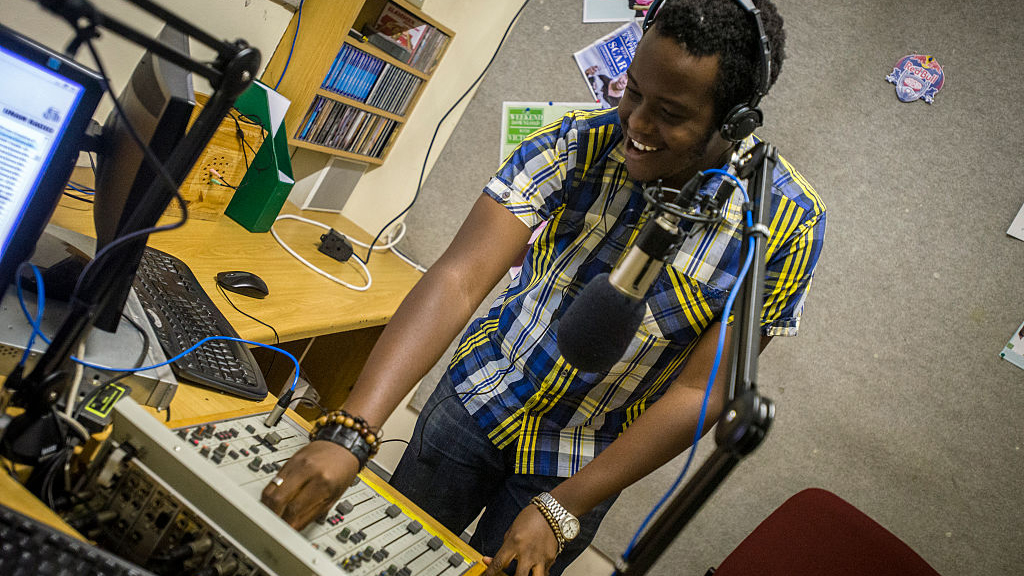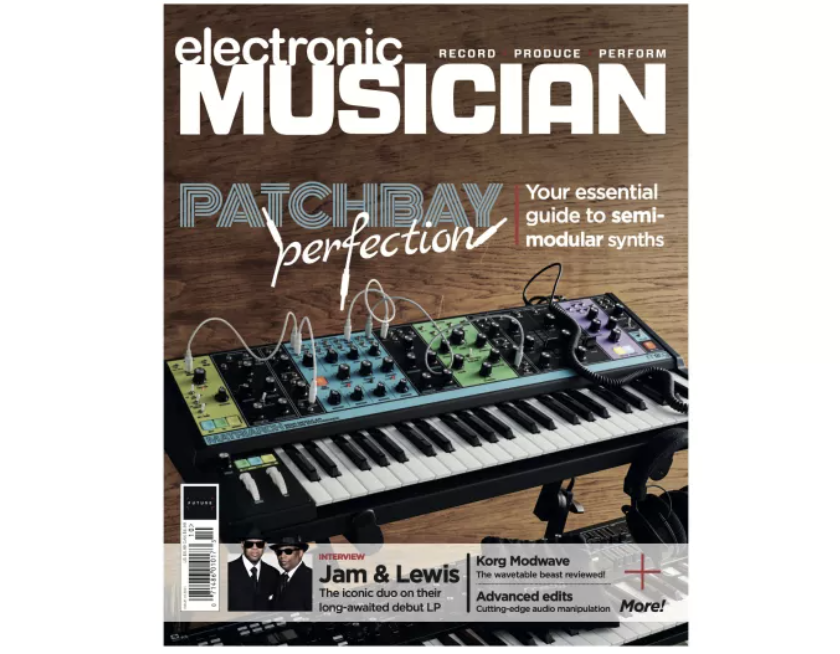How to get your music into a college radio station rotation
With just a little time, effort and follow-up, college radio is well within your reach

Want all the hottest music and gear news, reviews, deals, features and more, direct to your inbox? Sign up here.
You are now subscribed
Your newsletter sign-up was successful
College radio works the way that you'd expect commercial radio to work: you send them your music, and if they like it, they'll play it.
With just a little time, effort, and follow-up college radio is well within your reach.
Follow these directions to get your music on college radio.
- Goal: Get your music in the rotation of a college radio station
- Description: Many college radio stations have a regular rotation of music that their DJs play. You can get your music added if you submit it in the right way.
- Audience: College radio listeners
- Cost: Free
- Direct income: None
- Royalty income: Composition PROs, possibly Streaming PROs
- Estimated time: 1 day preparation with results in 2 months
1. Compile a list of targeted college radio stations and shows.
Head here for a list of college radio stations. Choose stations that are in your area or are where you are touring. Go to each station's website to research if the station plays your style and genre of music and find the station's music submission guidelines. If you can find an artist that plays similar music and find out where they are being played, that's a great place to start.
2. Set up a tracking system.
You'll need to keep track of who, where, and when you sent your music and press kits. A document or simple spreadsheet works fine.
Want all the hottest music and gear news, reviews, deals, features and more, direct to your inbox? Sign up here.
3. Call in advance and establish a relationship with the music director.
Calling in will let you talk up your band and music. This is what professional independent radio promoters do for labels and you're up against them (see pay-for-play options below). The key to getting your CD played and in rotation is for you or your representative to build a personal relationship with the music director of the radio station or host of the show you're targeting. Although if you can get a friend or someone working with you on the music to make the call, this will be even more effective.
Once your list is finalized, call each of the stations to double-check the contact information and find out exactly what materials they expect to receive.
4. Prepare your music.
For best results, make high-quality MP3s and WAVs of your music to send to them. Some stations might have format requirements, and you may need to prepare your music with them.
5. Prepare your bio.
Radio stations are not like journalistic outlets -- they only need the most basic information about who you are but you still should share a short version of your story. Also, pay attention to their submission guidelines and tweak the materials that you send them accordingly.
5. Submit your materials.
If you contacted the station and they told you to send in your CD, then write "SOLICITED MATERIAL" on the outside of the envelope so they know it was requested by them. Otherwise, send your music the way that they requested it. If you are touring in the station's area, make sure that they know that in the email that you compose to them. This also tells them when you will be in their area so they can announce your show, schedule an interview, or get you to play live on-air. And make sure your email tells them how they can contact you, not only on email, but if they want to call to get in touch.
6. Call and verify that they got it.
If they don't get back to you, call your contact at the station to verify that they received your music. This is another opportunity to talk more about your music and upcoming shows. Ask when they'll listen to it and consider it for rotation. Note this date in your tracking system. If they didn't receive it, resend it to them.
7. Follow up to verify it was added to the rotation.
Call your contact again a few days after they said they'd listen to it and find out if your music was added to the rotation. Note that being added to the rotation does not necessarily mean you will get played -- it's usually up to the DJs to decide when to play the songs. It's likely you won't know if your music was played unless you listen to each station or they keep a log at their website.
8. Keep calling back to verify it was added to the rotation until you get an answer.
Polite persistence works, and you should "go to a no" because the repeated contacts can make sure that they give your music a listen.
9. If you get added, announce it on your social media and send a thank you to the radio station.
Getting added to a radio station's playlist is a great thing to share on social media. But don't forget to send a thank you to the radio station, and keep that station and the contacts you made there on a list because they are the most likely places to play your next release.
How to Get Paid:
College radio stations do pay the composition PROs to play their music. Also many college radio stations stream, and thus generate sound-recording PRO royalties with SoundExchange.
Make sure that you register with both in order to get the royalties that you're owed. If you'd like to understand how, see the Your Rights chapter in The Indie Band Survival Guide. Specifically the section "The 7 Registrations You Should Do For Every Composition And Sound Recording To Ensure You're Protected And Paid What You're Owed".
Pay-to-Play Options:
You can hire a radio promoter who already has relationships with the radio stations and their staff to contact all of them personally in order to increase the chances of getting your music added to college radio stations.
Electronic Musician magazine is the ultimate resource for musicians who want to make better music, in the studio or onstage. In each and every issue it surveys all aspects of music production - performance, recording, and technology, from studio to stage and offers product news and reviews on the latest equipment and services. Plus, get in-depth tips & techniques, gear reviews, and insights from today’s top artists!
